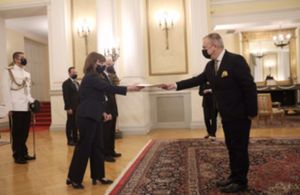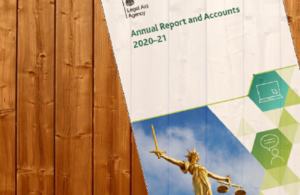- Six of the world’s most important biodiversity hotspots – spanning 18 countries – to share funding from the Government’s £100 million Biodiverse Landscapes Fund
- Projects will tackle biodiversity loss, combat climate change and help deliver our goal to protect 30% of the world’s land and sea by 2030
Six environmentally critical landscapes across the globe will receive funding to tackle biodiversity loss and combat climate change. The landscapes selected are each home to rare and endangered species: elephants and rhinos in Kavango–Zambezi Transfrontier Conservation Area (KAZA); western lowland gorillas in the Western Congo Basin; tigers in the Lower Mekong and jaguars in Mesoamerica.
These species are supported by diverse ecosystems and habitats, including rainforests, wetlands, temperate forests and mangroves. By driving action to protect these landscapes and habitats, the Fund will protect the wildlife that calls them home, through conserving protected areas, improving connectivity between habitats for key species and combatting the illegal wildlife trade.
The landscapes announced today include:
- Kavango Zambezi Transfrontier Conservation Area, covering areas of Angola, Botswana, Namibia, Zambia and Zimbabwe
- Mesoamerica, covering areas of Belize, El Salvador, Guatemala and Honduras
- Congo Basin, covering areas of Cameroon, Gabon and Republic of Congo
- Andes Amazon, covering Ecuador and Peru
- Lower Mekong, covering Cambodia, Laos and Vietnam
- Madagascar
In Mesoamerica, the fund will cover two regions spanning Belize, Guatemala, Honduras and El Salvador. The northern region covers the Guatemalan and Belizean portions of the Selva Maya. The southern region covers the Trifinio region, including a tri-national transboundary biosphere reserve in Guatemala, Honduras and El Salvador.
Today’s announcement forms part of the Government’s ambitious commitments ahead of COP26 and builds on successes achieved at the UK chaired G7, which saw G7 leaders commit to protect and conserve 30% of the world’s land and ocean by 2030. The global ‘30by30’ target is now supported by over 100 countries worldwide.
Prime Minister Boris Johnson said:
The global population of animals is plummeting faster than at any time in human history and precious habitats and species are being wiped off our planet.
We are at a tipping point, and we must act now – right now – to turn the tide of this environmental crisis before it is too late.
Our Biodiverse Landscapes Fund will invest in six of the most environmentally critical landscapes, spanning 18 countries across the globe, to help to combat climate change and protect rare and endangered species.
The Guatemalan Minister of Environment and Natural Resources, Mario Rojas Espino, said:
Guatemala is considered one of the countries with the greatest biological diversity on Earth. Its diversity constitutes an invaluable and irreplaceable national natural heritage, which provides us with an exceptional variety of environmental goods and services for our well-being, whose conservation should be a priority, and financial resources are certainly needed for protection and conservation.
The nation welcomes the opportunity presented by the United Kingdom through the funding window to protect biodiversity, as it is an opportunity to access financial and economic resources, and carry out joint work that guarantees the protection of our natural resources.
Having financial resources will allow us to implement sustainable development projects, aimed at meeting the goals of the 2030 agenda, within the framework of the Biodiversity Convention. Guatemala applauds this effort of the United Kingdom, through the Biodiversity Landscapes Fund, and hopes to achieve access to these resources as soon as possible, because they will be of great benefit to the millenary Guatemalan biodiversity.
Over seven years the funding will be invested in local projects that support the protection and restoration of landscapes through nature-based solutions, which will tackle climate change while providing sustainable livelihoods for local communities.
On the ground, the projects will be led locally and collaboratively within local communities, supported internationally by environmental organisations, academics and private sector organisations. The projects aim to fast track the recovery of nature through activities such as sustainable agricultural practices, promoting natural resource management and strengthening indigenous people’s rights to sustainably manage their lands.
Communities that are most dependent on the resources offered by these landscapes, including indigenous communities, suffer most and suffer first from their loss or degradation. The fund will work with local communities and will support sustainable economic development to allow local people to benefit long-term from their environments.
The projects are expected to start by the end of summer 2022.
The fund counts as Official Development Assistance, part of the UK’s commitment to international development.

